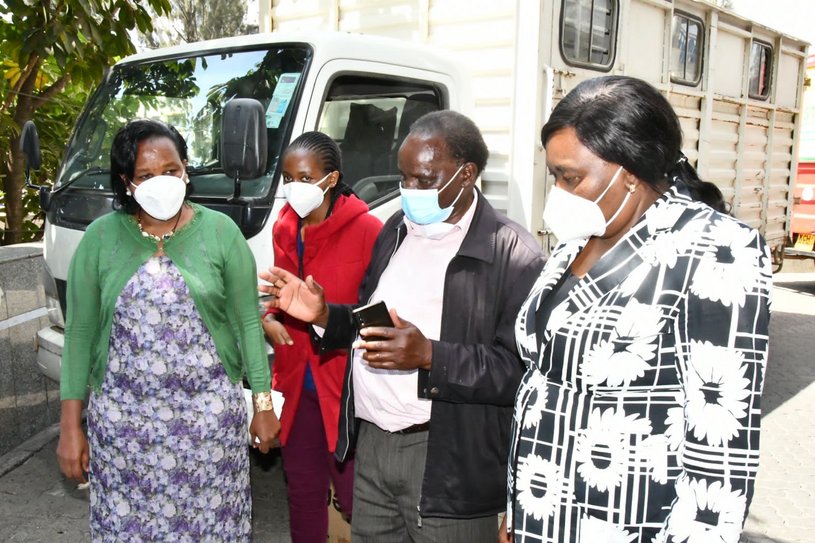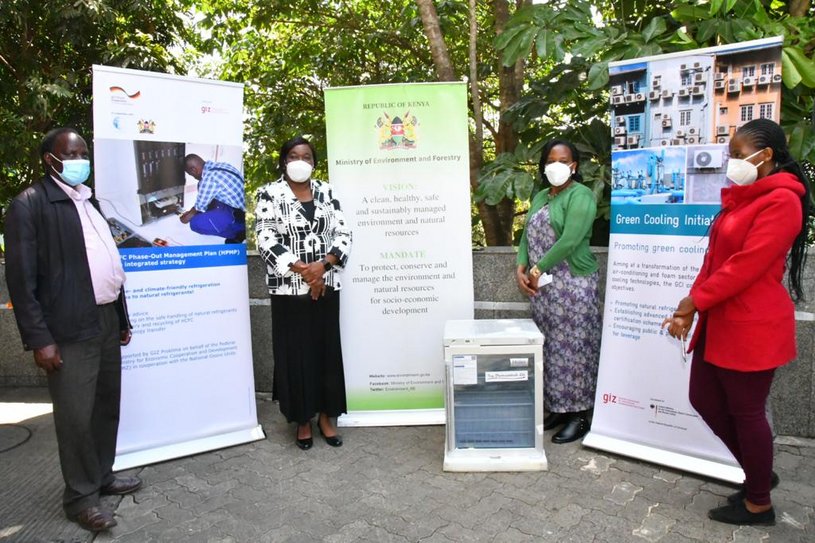Globally, Ozone Day is marked every September 16 and this year Isiolo County hosted the event in Kenya.
The Ministry of Environment and Forestry in collaboration with GIZ, and Isiolo County identified Isiolo referral hospital in Isiolo town, as the beneficiary of the donation of an ozone and climate-friendly medical refrigerator for safe storage of vaccines and medicines. The donation of the refrigerator was done in line with the Ozone Day Theme “Montreal Protocol – Keeping us, Our Food and Vaccines Cool”. The environmentally friendly refrigerator was donated by the Green Cooling Initiative on behalf of the German Federal Ministry for the Environment, Nature Conservation and Nuclear Safety and was received by Dr. Lucy Ng’ang’a Assistant Director, Multilateral Environmental Agreements (MEAs) on behalf of the Principal Secretary, Ministry of Environment and Forestry, for onward transmission to Isiolo Hospital.

The medical refrigerator uses the natural refrigerant isobutane (R600a) and therefore does not harm the ozone layer or the climate. Designed to meet the demanding requirements of everyday use, it incorporates the latest in cabinet, refrigeration, and temperature control features to provide energy efficient, safe, convenient, and reliable storage of temperature sensitive items such as vaccines and other medicines. The need for refrigeration equipment to store vaccines is crucial in the country, especially in light of the Covid-19 pandemic, and it is important to note that the refrigerator is reliable.
GIZ Proklima through the Green Cooling Initiative (on behalf of the German Federal Ministry for the Environment, Nature Conservation and Nuclear Safety) and the HCFC Phase-Out Management Plan (on behalf of The French Development Agency (AFD/FFEM) and the German Federal Ministry for Economic Cooperation and Development) has supported the Kenyan Ozone Unit in its efforts to foster ozone- and climate-friendly cooling solutions in the country for more than 24 years. Together, a national cooling strategy was developed, technical pilot projects have been carried out and almost 1,000 refrigeration technicians and customs officials have been trained in the handling and detection of natural refrigerants.

